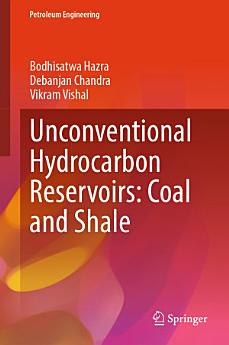Unconventional Hydrocarbon Reservoirs: Coal and Shale
Mayelana nale ebook
Energy from conventional petroleum reservoirs and coal has been the backbone of global energy needs for a long time. However, depletion of these fossil fuel reserves, as well as their contribution to rising greenhouse emissions, has prompted a shift to renewable energy sources. Natural gas found in unconventional coal and shale reservoirs is increasingly seen as a greener energy option, emitting approximately 45% less CO2 than conventional sources. Furthermore, due to their vast availability and capacity to sequester atmospheric CO2, unconventional coal and shale reservoirs can facilitate the transition to renewable energy resources.
With a focus on achieving temperature stabilization at 1.5°C, this book offers a valuable resource for those interested in renewable energy and mitigating climate change.
Mayelana nomlobi
Dr. Bodhisatwa Hazra, a Senior Scientist at CSIR-Central Institute of Mining and Fuel Research, Dhanbad, India, is currently working as a Visiting Scientist at the University of Kiel, Germany. He specializes in Petroleum Geochemistry, Organic Petrology and is currently focusing on unconventional reservoir geochemistry-petrophysics, and CO2 sequestration. Dr. Hazra obtained his PhD degree from Indian School of Mines, Dhanbad, on the shale-gas assessment of Raniganj basin, India. Dr. Hazra is a recipient of DST Inspire Faculty award, 2015 and CSIR Young Scientist Award, 2019. Currently, he serves as an Associate Editor of the Journal of Geological Society of India, and the Arabian Journal of Geosciences.
Dr. Debanjan Chandra, is a Postdoctoral Fellow at TU Delft. He received his PhD degree from Indian Institute of Technology Bombay on resolving the gas storage and migration behavior in shale and coal for enhanced gas recovery and CO2 storage applications. By combining reservoir permeability with rock mechanical properties, he attempted to quantify reservoir stability during enhanced hydrocarbon recovery. Dr. Chandra also used gas adsorption as well as X-ray and neutron scattering to assess the gas storage capacity of shale and coal reservoirs which were validated using 3D X-ray CT and 2D electron microscopic imaging.
Dr. Vikram Vishal is an Associate Professor at Indian Institute of Technology (IIT) Bombay, India, and holds a PhD degree jointly from IIT Bombay and Monash University, Australia. He has had brief professional stints at IIT Roorkee, Stanford University, Massachusetts Institute of Technology, Shell and Tata Steel Limited. Dr. Vishal specializes in reservoir geomechanics, unconventional petrophysics and geologic carbon sequestration. A two-time Fulbright Fellow and a two-time national awardee, Dr. Vishal is a recipient of several notable recognitions. He has received 2 patents, and authored over 100 research publications, five national roadmaps and four international reports in his domains of expertise.




